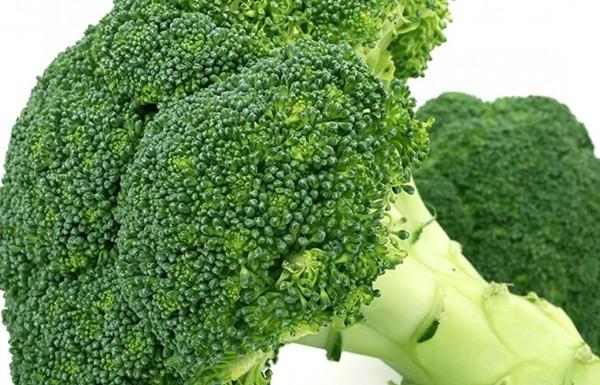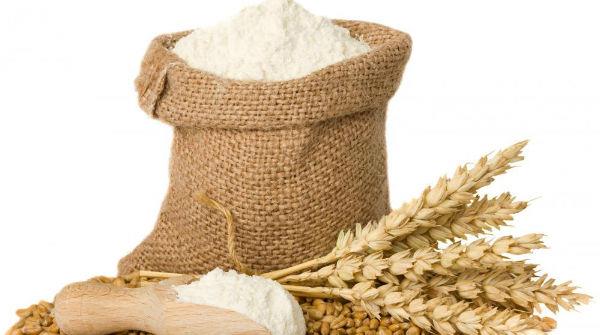Both affect the mother's health, the daily diet during lactation, and greatly affect the flavor and quality of milk. If you still do not know what breastfeeding mothers should not eat, these are 17 by-products so especially consider not to use during this period!
content
Breastfeeding mothers should abstain from what?
Pregnant mothers should not eat foods that cause allergies
Avoid alcohol and caffeine while you are breastfeeding
What fruit should not be eaten by breastfeeding women?
Foods containing caffeine, alcohol and nicotine, allergens or blockages are things to avoid as much as possible if you are wondering what your nursing mother should not eat. Because they can enter the baby's body through breast milk, make the baby uncomfortable, sleepless or worse, adversely affect the baby's development after birth .
Breastfeeding mothers should abstain from what?
Fastfood
Research in November 2010 of the European Journal of Nutrition shows that during lactation, if the mother consumes more than 4.5 grams of trans fats, the type commonly found in fried foods, food Fast ..., the baby's obesity risk increases 2 times compared with other children.
Broccoli
According to folklore, mothers who eat broccoli, cauliflower or other vegetables that cause bloating can make your baby itchy and get bloated. However, this situation does not happen to everyone.
Ideally, if you suspect broccoli is the culprit, you can stop eating for a few days to see if your baby's symptoms are progressing better. Do not stop completely but should eat small amounts slowly to see the baby's reaction because this is a very healthy vegetable.

Broccoli is very good but breastfeeding mothers should pay attention when eating, especially raw
If possible, mothers should be steamed instead of raw, which will help improve your baby's gas.
Spicy food
While they do not affect the quality and quantity of breast milk, these foods can affect the flavor of the milk in about eight hours.
Some sensitive babies may feel uncomfortable and fussy when they detect a strange smell in the milk. Ideally, when you are wondering what you should not eat while breastfeeding, you should consult your doctor to know what spices will be safe while breastfeeding.
Fish
Fish does not make your baby uncomfortable crying or distressing, but the mercury that is inherent in fish can contaminate your breast milk. As recommended by the FDA, breastfeeding women should eat at least 2 servings of low-mercury fish and shellfish each week.
The five common "fish" that are low in mercury are shrimp, canned tuna, salmon, polo (pollock) and catfish. The types of fish you should avoid while breastfeeding are shark, swordfish, queen mackerel and tilefish.
Mint
Peppermint tea is often used as a remedy to stop lactation after weaning your baby. This is because there are several ingredients in mint that help reduce your milk production. This has been confirmed by herbal experts.

What should pregnant women not eat in the first 3 months of pregnancy? During pregnancy, a well-balanced diet should be followed as soon as possible. In addition to nutritional supplements, do not forget to find out the answers to 2 questions: What should not be eaten when pregnant? what should i eat when i am pregnant?
Parsley
Parsley is also an herb related to mint, so it can also reduce your milk intake when consumed in large quantities. If you use traditional herbal remedies, double-check to make sure not to consume significant amounts of parsley.
However, it's fine to decorate the meal with just a few stalks of parsley, or make an occasional bowl of mixed vegetables.
Piper lolot
Like peppermint and parsley, guise leaves can also cause loss of milk or impaired lactation. You should limit the use of this vegetable if you do not want the milk to "disappear".
Pregnant mothers should not eat foods that cause allergies
Dairy products
Many children cannot tolerate cow's milk of all kinds. When you consume dairy foods (yogurt, ice cream and cheese), those allergens can get into your breasts.
It causes symptoms of a baby's dairy allergy or sensitivity such as colic and vomiting, inability to sleep and eczema. It even causes dry, rough red spots on the skin that tend to be open, sores, and watery.
You can try stopping dairy products for 2-3 weeks to check. Some babies may also be allergic to either goat's or sheep's milk. In addition, in a few cases, babies responded to beef in the mother's diet simultaneously.
Wheat
If you eat a sandwich or plate of pasta before feeding and then cause your baby to experience symptoms such as constant crying, painful expressions, or bloody bowel movements, wheat may be the cause.

Mothers who eat wheat can cause allergies to a nursing baby
To check for allergies or sensitivities, remove foods containing wheat from your diet for 2-3 weeks. If your baby's symptoms improve or completely go away, it may be necessary to avoid wheat foods.
If your baby's symptoms still do not improve, try excluding other suspicious foods one by one to find out the cause.
Types of seafood with hard shells
According to experts, if a family member has a history of allergy to a certain food, the chance that babies will be allergic to that food is also higher and earlier.
In other words, if the child's father has an allergy to shellfish but you have no problem with the shrimp and crabs, you will most likely have to "abstain" from these foods for the duration of the baby's nursing. with breast milk.
Peanut
If you have a family member with a food allergy, you should exercise caution before adding products made from peanuts (peanuts) or nuts to your diet.
Pay attention in case you eat peanut-based foods and your child has symptoms of sensitivity or allergy, such as rash, rash, eczema or wheezing. However, some babies show no symptoms when allergic to peanuts.

What does a pregnant mother eat to make her child smart like a prodigy? In order for the baby to develop comprehensively, right from the moment of pregnancy, the mother needs to supplement all necessary nutrients for development. Especially what pregnant mothers eat to make their babies smart is always the top concern for pregnant women.
Soy bean
Many children who are intolerant to dairy also exhibit similar symptoms when they are allergic to soy. If you suspect soy may be the cause of your baby's trouble, consider the type of soy you consume.
The processed forms of soybeans into bars or drinks can activate the sensitive mechanisms of the baby's body. Fermented soy foods are more acceptable to the baby's body.
Egg
Allergy to eggs (usually due to egg whites sensitivity) is quite common in young children. But since eggs are present in almost every food, from bread to snacks to ice cream, identifying can be difficult.
One way breastfeeding mothers can apply is to exclude all the most allergenic foods from the menu (dairy, soy, egg whites, wheat, peanuts and nuts. , shellfish).
After two weeks, you can gradually re-eat each of the above allergenic foods at intervals of 4 days to monitor your child's symptoms.
Avoid alcohol and caffeine while you are breastfeeding
Alcohol
According to the American Academy of Pediatrics, the habit of drinking a lot or not in moderation can cause many side effects such as drowsiness, excessive sleep, weakness, abnormal weight gain, as well as decreased reflexes. mother's milk secretion.
This is one of the top foods that should not be eaten while breastfeeding. If you need to relieve stress while breastfeeding, try a relaxing bath, a cup of chamomile tea or a massage.
The coffee
If you wonder what diet postpartum women eat, coffee is the first answer. 1% of caffeine consumed by the mother will be stored in breast milk and passed to the baby during lactation.

Breastfeeding mothers should not drink coffee
This amount of caffeine will accumulate in the baby's body, because babies are still not able to excrete caffeine. Babies can be itchy, irritable, or even sleepless if they have a lot of caffeine in their body.
In addition to coffee, mothers should also limit tea, carbonated soft drinks, chocolate ... Although not too much, the amount of caffeine in these foods is also quite significant.
What fruit should not be eaten by breastfeeding women?
Citrus fruit
Contains vitamin C and minerals with health benefits, oranges and oranges are a very good fruit for new mothers. It should also be added to the menu for postpartum mothers .
However, for some children with sensitive terrain, some ingredients in oranges can cause long-term itching, fussing, vomiting, or a red rash on the skin.
If you realize that your child has the above symptoms, you can cut down on these foods in your menu. Wait until the baby is 3-4 months old, the digestive system is more complete, the mother can use oranges when needing to find a food for the question of what to eat to get more milk ?
Roasted corn)
Corn allergy is also quite common, but is difficult to identify. Be sure to keep a careful record of the specific portion of your diet (for example, instead of a snack, specifically write it down) and any allergic symptoms your baby exhibits that day. .
If you notice colic pain or increased crying times after you have eaten corn foods, you may need to abstain from this.
Breast milk is always best for babies and babies. However, there will be many foods that are not good for the baby that can enter the baby's body when mothers eat through breast milk. Therefore, when breastfeeding, pregnant women need to find out what mothers should not eat to avoid affecting the immature digestive system of their babies.
















